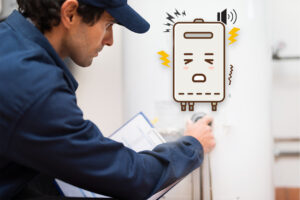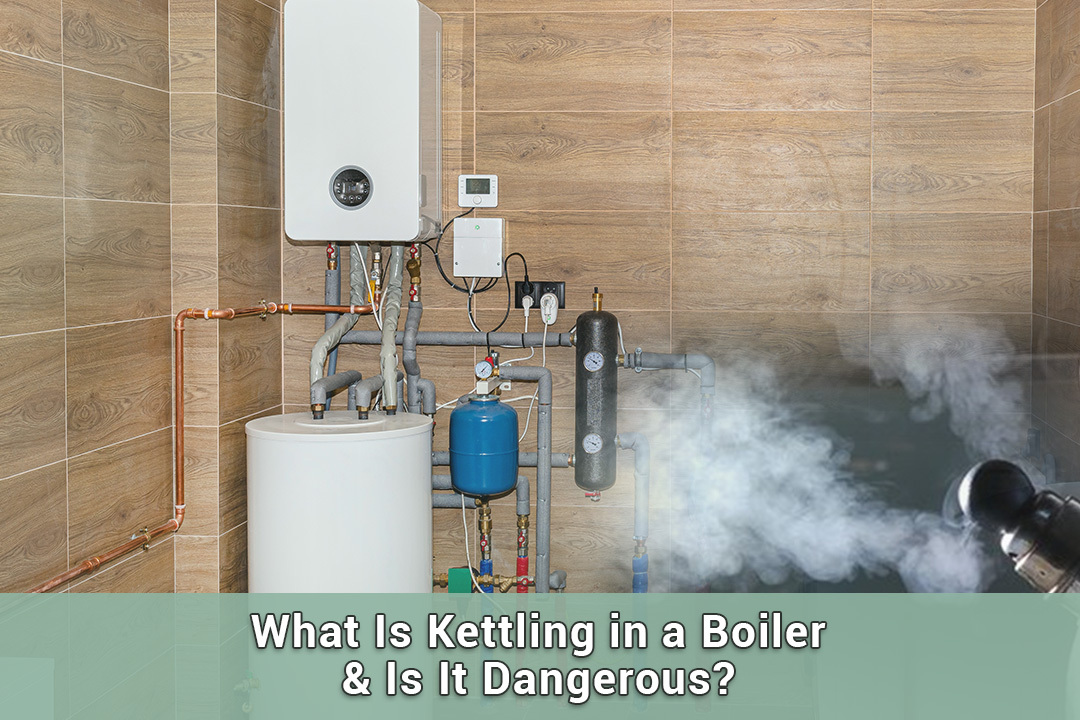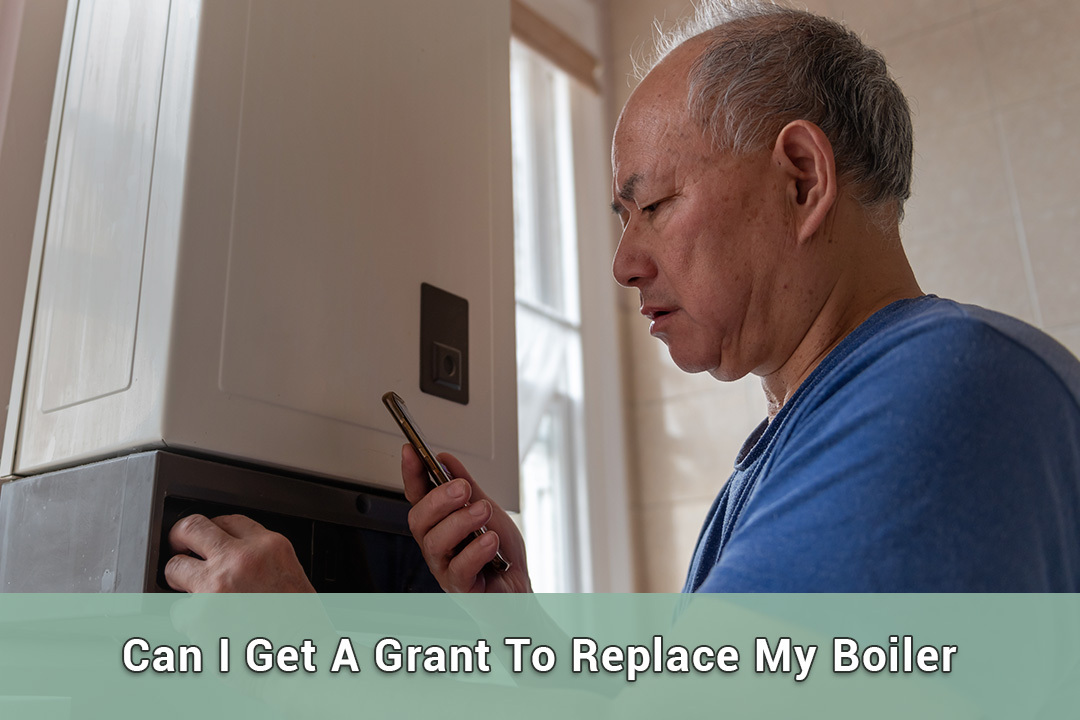Table of Contents
People who live in their own homes may find boiler kettling sounds annoying and scary. If the boiler makes a lot of noise, like a kettle, it might bang or whistle high up. These annoying noises could mean that something is wrong with the heating system.
Your boiler will last longer if you figure out what’s making it kettle and how to stop it. This blog post will explain what kettling sounds are and give you specific ways to make your boiler quieter.
You might be able to cut down on kettling noise and make your home more comfortable by learning about the reasons and taking steps to stop them.
Understanding Boiler Kettling Noise
Boiler kettling noise refers to any unusual sounds coming from the boiler that resemble the noise of a boiling kettle. It can include loud banging, whistling, or hissing sounds. These noises are often indicative of a problem within the heating system or heat exchanger. It is important to address these noises promptly to prevent further damage to the boiler.
What is Boiler Kettling?
Boiler kettling is a term used to describe the noise produced by a boiler that resembles the sound of a boiling kettle. It occurs when there is an obstruction or restriction in the flow of water through the boiler system. This can lead to the boiling and bubbling of water, resulting in the kettling noise.
The boiler heats water that is then sent to pipes or baseboard heating to warm your home. This is how central heating works. To get heat from the spark to the water, you need a heat exchanger. Ketting noise can happen when limescale builds up or when problems with the water supply stop the boiler from working.
Common Signs and Sounds of Kettling
- Loud banging or rumbling noises coming from the boiler
- Whistling or high-pitched sounds resembling a boiling kettle
- Bubbling or gurgling noises
- Hissing sounds
- These sounds can vary in intensity and duration, but they all indicate a potential issue with the boiler. If you notice any of these noises, it is important to address them promptly to prevent further damage to the heating system.
The Causes Behind Your Boiler's Kettle-Like Noises
There are several common causes behind the kettle-like noises produced by a boiler. One of the main culprits is limescale buildup, which can occur in areas with hard water. The accumulation of limescale in the heat exchanger or pipes can restrict water flow and lead to kettling noise.
Another common cause is a faulty thermostat, which can cause the boiler to overheat and produce unusual sounds. Identifying and addressing these causes is crucial to resolving the kettling noise.
Limescale Build-Up Explained
Limescale is common in places with hard water that has a lot of calcium and magnesium in it. When hard water gets hot, these minerals may settle to the bottom and turn into limescale. Deposits could block the heat exchanger or lines in the boiler, stopping the flow of water and making kettling sounds.
Clean and keep the heat exchanger on a daily basis to avoid limescale. A scale inhibitor or descaling agent might help get rid of limescale and keep it from coming back. Problems with limescale need to be fixed quickly to keep your boiler running well and keep the heating system safe.
Water Flow Restrictions and Overheating
More common causes of boiler kettling are limited water flow and too much heat. If the boiler’s water flow is slowed down or blocked, the kettle may make noise and boil water in certain areas. This could be due to a broken pump, sludge, or limescale growth.
If the temperature on the boiler is too high or broken, it could get too hot. This could heat the water too much and cause it to kettle. By stopping the water flow and keeping an eye on the timer, regular upkeep like cleaning and checking the temperature may lower the noise of the kettle.
Preparing to Fix Boiler Kettling Noise: What You'll Need

Make sure you are safe and have the right tools before you try to fix boiler kettling noises. It’s dangerous to work with boilers, so talk to a heating worker or safety engineer.
There may be a need for a magnetic filter, a liquid stopper, and a power cleaning machine. These tools are often used to deal with kettle noise and boiler efficiency. When heating systems are being maintained, safety must come first and rules must be followed.
Essential Tools and Equipment
Boiler kettling noise might need the following tools and gear:
- A power clean machine gets rid of the muck and debris that cause kettling. This method brings back the flow of water and cleans it.
- Magnetic screens get rid of magnetic sludge and particles in the system. This keeps buildup from happening and keeps the boiler working well. A liquid regulator might also lower kettling sounds by stopping the buildup of sludge and limescale.
The right way to deal with boiler kettling noise is to use these tools and methods. If you don’t feel safe doing the work yourself, you should hire an experienced boiler expert.
Safety Precautions Before You Start
When working on boiler systems, safety is very important. Because boilers can be dangerous, you should make sure you are safe before you start working.
Turn off the boiler and all of its electricity lines before you start any repairs or maintenance. Follow lockout/tagout steps to keep your computer from starting up by chance.
To stay safe, put on safety glasses and gloves. For safety, use the temperature control and pressure release buttons on the boiler .
Carefully drain the system and be careful around hot parts. Do not try to fix your boiler if you are not trained or experienced, and be careful around electricity.
Boiler kettling noise can be cut down without putting safety at risk by taking the right safety measures.
A Step-by-Step Guide to Silencing Your Boiler
Follow our detailed boiler quieting directions to cut down on kettling noise. If you are worried about the tasks, you should talk to a trained boiler expert.
Step 1: Identifying the Source of Kettling
The first step in addressing boiler kettling noise is to identify the source of the problem. This can be done by listening for any unusual sounds coming from the boiler. Common problems that can cause kettling noise include limescale buildup, sludge, or a faulty thermostat.
Inspect the boiler and surrounding pipework for any signs of limescale or blockages. Listen for any unusual sounds, such as banging, whistling, or hissing. These can indicate a potential issue that needs to be addressed.
Once you have identified the source of the kettling noise, you can move on to the next steps to resolve the issue. If you are unsure or unable to identify the source of the problem, it is recommended to seek the assistance of a qualified heating engineer.
Step 2: Flushing and Cleaning the System
One of the main causes of boiler kettling noise is the buildup of sludge or debris in the system. To address this, a power flush can be performed to flush out any sludge or blockages in the pipework.
A power flush involves connecting a power flush machine to the system and circulating a cleaning solution through the pipes. This helps to dislodge and remove any sludge or debris that may be causing the kettling noise.
It is important to follow the manufacturer’s instructions for the power flush machine and use the appropriate cleaning solution. Flushing the system may take several hours, depending on the severity of the buildup. Once the flush is complete, the system should be thoroughly cleaned and free of any sludge or debris.
Step 3: Adjusting the Boiler's Pressure
The sound of kelling can also be caused by high water pressure in the boiler. Changing the boiler pressure stops the kettling noise and lets the water flow again.
See what the current pressure is on the boiler’s pressure gauge. Open the pressure release valve or let the radiators bleed to lower the pressure.
Carefully handle hot parts and change the pressure as directed by the maker. By checking and changing the boiling pressure, noise from the kettle can be kept to a minimum and the system can run smoothly.
Step 4: Installing a Scale Inhibitor
Install a scale inhibitor to stop kettling and limescale growth. Scale inhibitors stop the growth of limescale, which stops system degradation.
A scale inhibitor may move through the central heating system and cover its surfaces to keep limescale from sticking. Kettle noises might be avoided by making sure water flows and keeping trash from building up.
Installing and taking care of the scale inhibitor must be done according to the manufacturer’s directions. Check the inhibitor often and add more if needed to avoid limescale and kettling noise.
Preventing Future Kettling Noise in Your Boiler
As soon as the kettling noise stops, you need to stop it from happening again. Limescale growth and other kettling noise problems can be avoided by giving your boiler regular maintenance.
If you need to replace your old boiler, get a newer one that works better. These days’ boilers work better and don’t kettle as often. They promise their work and parts for a long time, which gives customers peace of mind and safety against kettling noises.
Regular Maintenance Tips
Regular maintenance is key to preventing kettling noise and ensuring the efficient operation of your boiler system. Here are some maintenance tips to keep in mind:
- Schedule annual boiler servicing to check for any potential issues and address them before they become major problems.
- Bleed your radiators regularly to remove any trapped air, which can affect water flow and lead to kettling noise.
- Use a chemical inhibitor to prevent limescale and sludge buildup in the system.
- Monitor boiler pressure and adjust it as needed to prevent high pressure and potential kettling noise.
- Keep the area around the boiler clean and free of debris to ensure proper airflow and ventilation.
By following these maintenance tips, you can keep your boiler in optimal condition and minimise the risk of kettling noise.
When to Seek Professional Help
While some boiler kettling noise issues can be resolved through DIY methods, there are situations where it is best to seek professional help. These include:
- If the kettling noise persists or worsens after attempting DIY solutions.
- If you are unsure of how to safely perform maintenance or repairs on the boiler.
- If you have an older or more complex boiler system that requires specialised knowledge.
- If you are not confident in your ability to identify and address the underlying cause of the kettling noise.
When seeking professional help, it is important to choose a qualified heating engineer who is registered with the Gas Safe Register and regulated by the Financial Conduct Authority. This ensures that the work is performed safely and to a high standard.
Conclusion
Don’t worry if your boiler stops making that awful kettling sound. The first step to peace in the home is to find the source of the trouble. If you know how to deal with limescale and water flow problems, you can avoid more trouble. To get rid of the noise from your boiler and enjoy a quiet home, follow our step-by-step steps and do preventative maintenance.
Remember that regular boiler repair makes sure that it works well and lasts a long time. Don’t be afraid to get help from a professional if you need it. Just a few steps away is a boiler that is quiet and works well.
FREE ELIGIBILITY CHECKER







